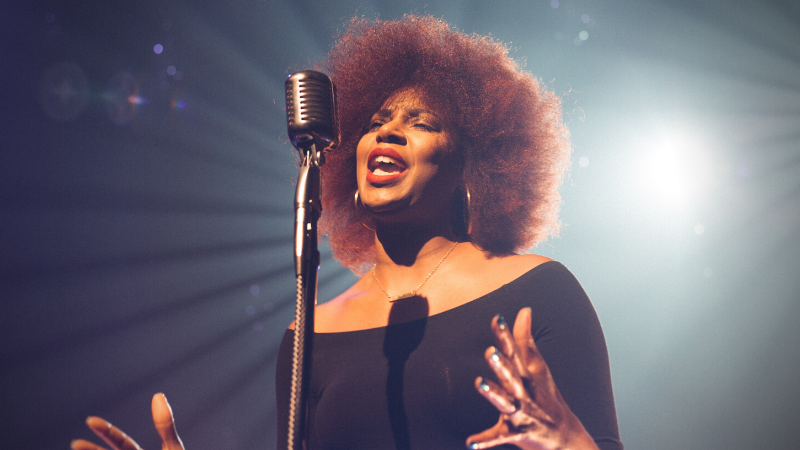How to get nominated for a Grammy as an Independent artist
Believe it or not, Grammy’s are not exclusively awarded to mainstream pop artists. Here is everything you need to know so you can become a future nominee…
by Randi Zimmerman from the Symphonic Blog
As you watch the Grammys each year, it seems as though the only people who win are always the Kanye’s and Beyoncé’s of the industry. What you may not know is that there are tons of other winners not shown on tv, most of which are talented independent artists who have been working just as hard as you are now. If you’re a talented musician, it’s not as hard as you think to get nominated for a Grammy, and it certainly is possible to win as an independent artist. Want to get yourself on the list on nominees? Here’s how…
Being able to flex your Grammy win is not only a personal flex, but a major win in the eyes of this competitive industry we call home. Adding this accomplishment to future press releases, EPK’s, and more is a huge selling point that can definitely secure yourself more interest in your work as you move through your career than you would without. — Even now, when the mainstream isn’t always so mainstream and the landscape of this business is continuously changing, the legitimacy and prestige of a Grammy will always be impressive.

To be eligible for submission, your release must meet these requirements:
- Release Date // For the upcoming 2022 Grammy ceremony, submissions must have been distributed between September 1, 2020 and September 30, 2021.
- Length // To be considered for album submission, a recording must contain at least five different tracks with a total playing time of 15 minutes, or a total playing time of 30 minutes with no minimum track amount. Singles have no such requirements.
- Format // A submitted recording must be available for sale either in physical “brick and mortar” stores or online via digital download, or via a recognized streaming platform. A recording must meet the industry minimum standard 16-bit, 44.1 kHz rates. Each submitted song must have proper metadata credits (songwriters, producers, etc.) and International Standard Recording Codes (ISRCs) for each track.
- Original Material // Starting with the 2023 Grammys, an album must contain greater than 75 percent of newly recorded (within five years of the release date), recordings that have not been released prior. Currently the rule is 50 percent.
Are other credited personnel also eligible?
Yes!
For the 2022 Grammy ceremony and all ceremonies in the future, all credited artists (including featured artists), songwriters of new material, producers, recording engineers, mixers and mastering engineers are eligible to be nominated and win, at least in the Album Of The Year category. — Previously, all artists, songwriters, producers, recording engineers, mixers and mastering engineers were required to be credited with at least 33 percent or more of playing time. Now they’re eligible as long as they’re credited.
How are entries submitted for the Grammys?
To be submitted for Grammy consideration, a recording must be entered by members of the Recording Academy who are either Professional or Voting members. However, media companies like record labels and distribution companies can also register as members of the Academy and submit recordings for consideration.
How it works is each member of the Academy has an account on the Grammy website they can log in to and submit entries during the submission periods.
——
How does the Grammy voting process work?
The Grammy voting process consists of two rounds:
ROUND ONE // The Voting Members vote on the entries they believe should receive a nomination in their respective categories. Each specific category only has five slots, which is why even being nominated for a Grammy is a major accomplishment. The nominees have already been selected from a field of dozens of submissions in each category.
FINAL ROUND // Once the nominees in each category are set, the final voting round begins. The Voting Members vote on the nominee in each of their eligible voting categories they believe should win the Grammy. The nominee with the most votes wins the award. On the night of the ceremony, the awards for the categories with broader popular appeal are televised. This includes Album of the Year, Record of the Year, Best New Artist and many of the big awards in the more popular genres like pop and hip-hop. — Many more awards are not shown on TV, which tend to be the more niche in which categories many indie artists create.
What about the Latin Grammys?
The Latin Grammys are literally the Latin version of our Grammys. The voting process is the same, with members of the Latin Recording Academy submitting entries, placing those entries into categories, and voting in a nomination round and a final round to award a Grammy-winner.
“…but what’re the odds I ACTUALLY get nominated?”
It’s a HUGE and very common misconception that the Grammys are saved for only the biggest household names in the game. With hundreds of categories up for grabs, indies grace the nominee list every year.
Here at Symphonic, we’ve had a couple artists among us get nominated, even win. For example, Catherine Russell was nominated for Best Jazz Vocal in 2019. Stewart Copeland & Ricky Kej’s “Divine Tides” just won a Grammy award for Best New Age Album. Steel Pulsehas been nominated 9 times and won Best Reggae Recording for Babylon The Bandit.
In Conclusion…
You have nothing to lose from shooting your shot. Independent artists get nominated and WIN Grammys every year. If you’re working hard every day to improve your craft, put out great music, and consistently shape your artistry, your work deserves to be recognized at the highest level. At the end of the day, whether you win awards or not doesn’t define the quality of your work, but boy does it feel good…
Good luck!